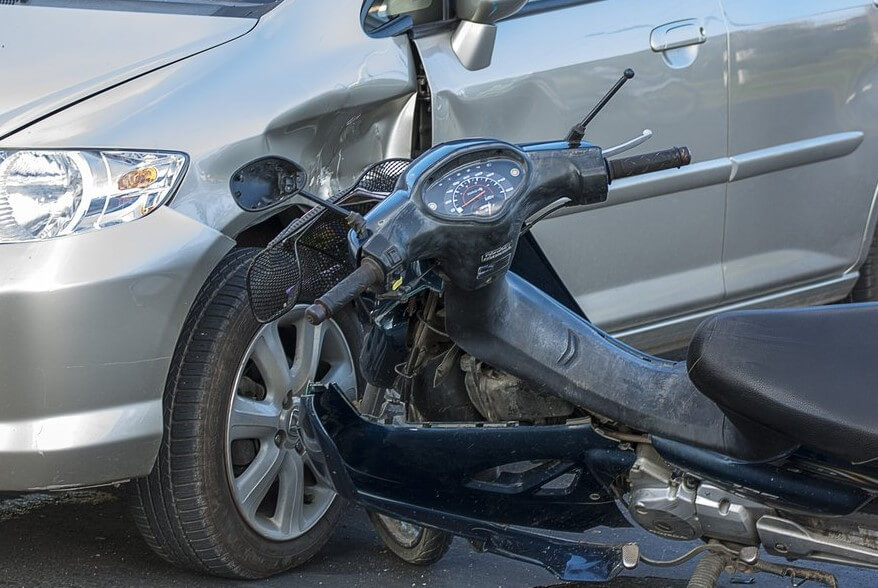Car vs. Motorcycle Accident: Understanding the Crucial Differences

In the realm of road accidents, two-wheeled and four-wheeled vehicles share the same space, yet they couldn’t be more different in terms of safety, dynamics, and consequences. In this comprehensive blog post, we’ll delve into the distinct worlds of car accidents and motorcycle accidents, highlighting their unique characteristics, risks, and implications.
Car Accidents: Safety in Numbers
Car accidents are relatively common occurrences on today’s roads. With the majority of the world’s population relying on four-wheeled vehicles for daily transportation, it’s no surprise that car accidents are among the most prevalent types of accidents. But what sets them apart?
1. Safety Features:
One of the most significant distinctions between car and motorcycle accidents is the level of protection offered by the vehicles themselves. Cars come equipped with an array of safety features, including seatbelts, airbags, crumple zones, and a sturdy metal shell designed to absorb impact energy. These safety measures significantly reduce the risk of severe injury or fatality in car accidents.
2. Collision Types:
Car accidents encompass various collision types, such as:
- Rear-end Collisions: Occur when one vehicle strikes the rear of another, often at lower speeds and resulting in minor injuries.
- Rollover Accidents: These are usually more severe and occur when a car overturns, often involving high-speed collisions or sharp turns.
- Side-swipe Collisions: Often result in minor injuries and typically involve two vehicles side-impacting each other.
- Head-on Collisions: Among the deadliest, as they usually involve high speeds from both vehicles and result in severe injuries and fatalities.
- Single-car Accidents: Occur when a driver loses control, often due to fatigue or vehicle malfunctions.
- Multi-car Pile-ups: Complex accidents involving multiple vehicles, leading to various degrees of damage and injury.
Motorcycle Accidents: Unveiling Vulnerability
On the other side of the coin, we have motorcycle accidents, which present an entirely different set of challenges and risks for riders.
1. Limited Protection:
Motorcyclists have minimal protection compared to car occupants. While helmets offer crucial head protection, riders lack the luxury of seatbelts, airbags, and a protective shell around them. This increased vulnerability significantly raises the risk of severe injuries or fatalities in motorcycle accidents.
2. Unique Accident Types:
Motorcycle accidents often involve unique types of incidents, including:
- Lane Splitting: Occurs when a motorcycle travels between two lanes of slow-moving or stopped cars, which can lead to accidents due to limited space and visibility.
- Collisions with Fixed Objects: Motorcycles are more prone to colliding with fixed objects, such as guardrails, lampposts, or road barriers.
- Left-hand Turn Collisions: A common scenario where a car turns left at an intersection, colliding with an oncoming motorcycle.
- Road Hazards: Motorcyclists face a higher risk of accidents caused by road hazards, like slippery surfaces, construction zones, or debris.
Common Motorcycle Accident Injuries:
Motorcycle accidents frequently result in specific injuries:
- Head Injuries: Head trauma is a prevalent consequence of motorcycle accidents, often leading to long-term disabilities or death.
- Orthopedic Injuries: Broken bones and fractures, particularly in the lower extremities, are common due to the lack of protection.
- Cervical Spine and Spinal Cord Injuries: While less common than head injuries, these can lead to paralysis and severe complications.
- Internal Injuries: Organ damage and hemorrhaging may occur, necessitating immediate medical attention.
- Minor Injuries: These range from sprained joints to road rash, generally leading to fewer complications.
The Importance of Motorcycle Safety:
Given the unique risks associated with motorcycles, safety precautions are paramount:
- Helmet Use: Wearing a proper helmet is critical, as it plays a vital role in preventing head and brain injuries. In many places, helmet use is legally mandated.
- Regular Maintenance: Motorcyclists should check tire pressure, tread, brakes, and lights before each ride to ensure their bike is in optimal condition, reducing the risk of accidents due to mechanical issues.
- Avoiding Impairment: Riding under the influence of drugs or alcohol impairs coordination and judgment, making accidents more likely. Being fully aware of your surroundings is essential for avoiding accidents.
The Role of a Motorcycle Accident Attorney:
In the aftermath of a motorcycle accident, seeking legal counsel is often a wise decision. Insurance companies may attempt to misrepresent their clients or pressure you into making statements that could negatively impact your case. A qualified motorcycle accident attorney can provide:
- Proper Representation: Ensuring your rights are protected throughout the legal process.
- Complex Case Handling: Managing the intricacies of your case, including negotiations and potential litigation.
- Compensation: Pursuing compensation for medical bills, lost earnings, emotional trauma, impaired quality of life, and punitive damages.
- Personal Injury Lawsuits: These can help you obtain maximum compensation, covering medical expenses and lost wages, and addressing pain and suffering stemming from the accident.
Saving Money in the Long Run:
While some may hesitate due to concerns about legal fees, consulting an attorney can actually save you money in the long run. Attorneys often work on a contingent fee basis, meaning they only get paid when you do. This incentivizes them to seek the best possible outcome for your case. Considering the potential savings in medical bills, therapy, and property losses, legal representation becomes a sound financial decision.
ALSO READ: What To Do After a Motorcycle Accident
In Conclusion:
In the comparison of car vs. motorcycle accidents, the differences are stark. Car occupants benefit from a range of safety features, reducing the risk of severe injury, while motorcyclists face a much higher level of vulnerability. Understanding these distinctions is essential for both riders and drivers to promote road safety and make informed choices in case of an accident. Additionally, seeking legal counsel can be a crucial step in navigating the complex aftermath of a motorcycle accident and ensuring fair compensation for victims.